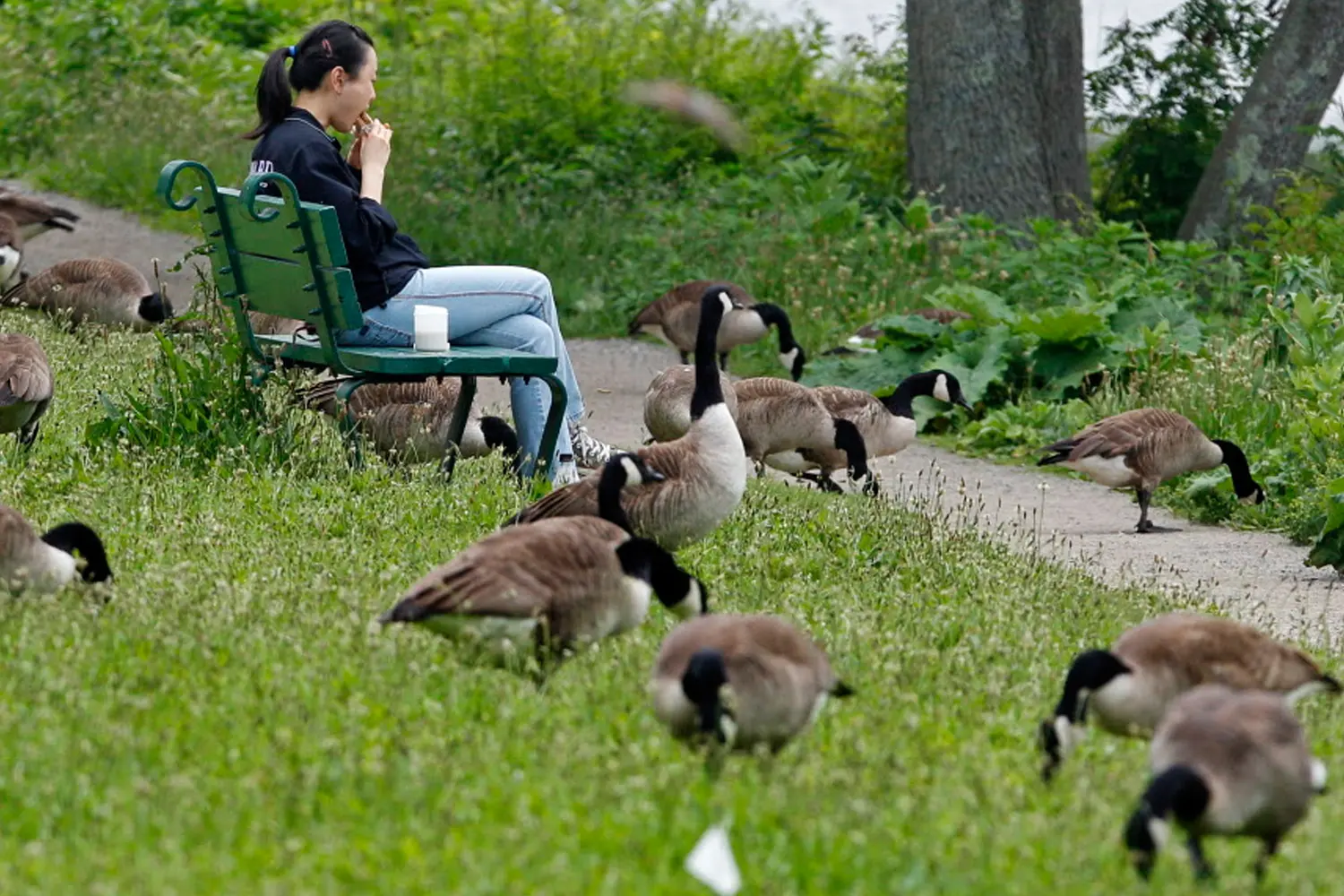In the quaint town of Peapack-Gladstone, New Jersey, a contentious decision has been made to euthanize approximately 60 geese that have been deemed a nuisance due to their droppings in Liberty Park. This decision has sparked a significant backlash from residents and animal rights activists who argue that more humane alternatives should be considered.
The town’s plan, which involves a $45,000 contract with the U.S. Department of Agriculture’s Wildlife Services, aims to address what officials describe as a serious public health issue. Liberty Park, a central green space surrounding a 1-acre pond, has become overwhelmed with goose excrement, which officials claim is contaminating the water and creating hazardous conditions for park visitors. “We do hold humans in higher regard than animals,” stated Mayor Mark Corigliano during a town meeting, defending the town’s commitment to human health and safety over the lives of the geese.
The execution, scheduled to take place during the molting season when geese are unable to fly, will involve rounding up the birds and using carbon dioxide gas chambers. This method, while legally sanctioned and employed by Wildlife Services, has been condemned by animal rights organizations and many residents as inhumane and unnecessary.
Doreen Frega, a director at the Animal Protection League of New Jersey, called the plan “animal cruelty at its highest level,” arguing that there are numerous non-lethal methods to manage the goose population.
Opponents of the plan have mobilized quickly, gathering over 6,000 signatures on a petition to halt the mass execution. They have proposed several humane alternatives, including habitat modification and the use of deterrents. Nancy Minich, a landscape architect consulting for the Animal Protection League, described Liberty Park’s current environment as “goose candy,” with expansive lawns and a water feature that attracts geese. She suggested that altering the landscape to make it less appealing to geese, such as planting less palatable vegetation and installing barriers, could be a long-term solution.
Additionally, some residents have volunteered to participate in regular clean-ups to manage the goose droppings, and one local advocate even offered to relocate the geese to her 170-acre animal rescue farm, the Barnyard Sanctuary, in New Jersey’s Warren County. Despite these offers, town officials remain resolute.
Councilmember Jamie Murphy, who initiated the contract with the Department of Agriculture, expressed a sense of urgency and desperation, citing the pervasive presence of goose feces and the health risks it poses, particularly to children playing in the park.
Border collies have been used successfully to chase away geese in other areas, such as the Brooklyn Botanic Garden and several Long Island towns. This method, which does not harm the birds, requires sustained effort and periodic reintroductions to be effective. However, town leaders in Peapack-Gladstone have opted for what they perceive as a more immediate solution, despite the Humane Society’s position that lethal methods provide only a temporary fix.
The controversy is reminiscent of a similar incident in Brooklyn’s Prospect Park in 2010, where Wildlife Services officials gassed 400 geese to protect aviation safety following the “Miracle on the Hudson” incident. The move drew substantial public outcry and has since led to fewer geese returning to the park.
Read More: NYC Worker in Shock After Tragic Accident Claims Elderly Man’s Life
Central Florida Residents Recall Famous Baseball Player Willie Mays!
Identity: The Sacramento Security Guard Who Died on The Job in The Bay Area Has Been Confirmed!
Residents and activists in Peapack-Gladstone continue to advocate for non-lethal solutions. They plan a protest on June 29 at Teterboro Airport to highlight the USDA’s broader practices in managing goose populations. The debate underscores the broader conflict between human needs and wildlife conservation, with Peapack-Gladstone becoming a focal point in the ongoing discussion about humane wildlife management practices.







+ There are no comments
Add yours